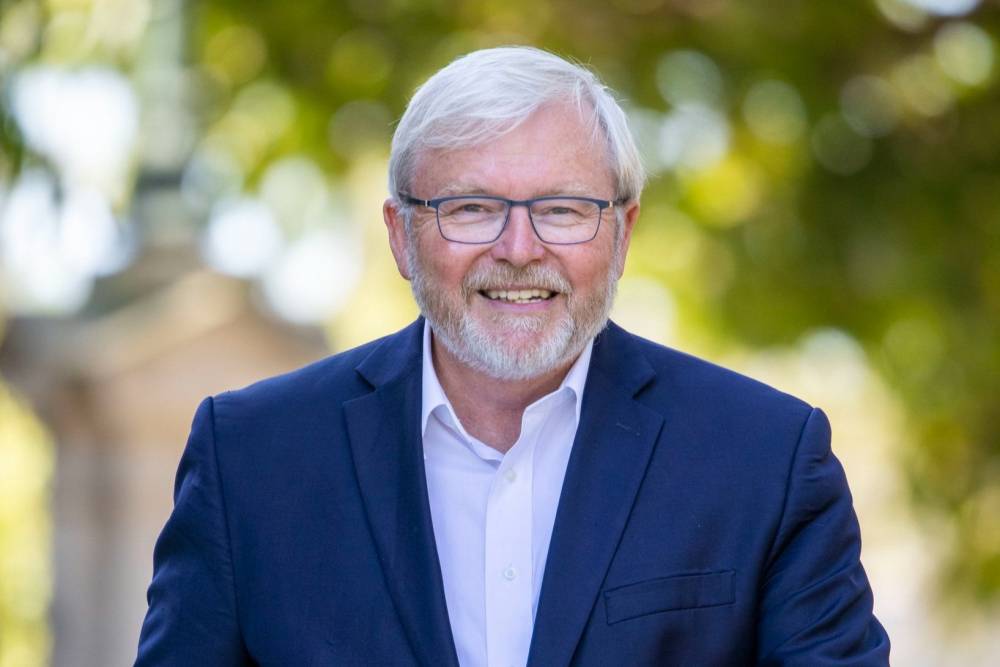
Australia’s Ambassador to the United States and former Prime Minister Kevin Rudd has ridiculed Donald Trump’s proposal to impose a 100% tariff on foreign-made films, calling it a “tax on Bluey” in a pointed critique delivered at a global conference in Los Angeles.
Speaking at the Milken Institute Global Conference, Rudd made light of the former U.S. President’s protectionist stance on film production, which seeks to penalize American studios that shoot movies abroad. “So this means a tax on ‘Bluey’ now, does it?” Rudd quipped, referring to the internationally acclaimed Australian children’s show. “What’s next? A tariff on kangaroos?”
Trump’s tariff proposal, announced via his social media platform Truth Social, has sparked alarm across the global film industry. Trump argues the move is designed to bring jobs back to the U.S. and deter Hollywood from outsourcing film production to countries with cheaper labor and tax incentives.
Rudd, however, warned that such a policy could damage international collaboration and cultural exchange, describing the proposal as short-sighted and potentially harmful to America’s soft power diplomacy.
“Media and storytelling are not just economic tools—they’re bridges between cultures,” Rudd said. “Penalizing foreign-made films doesn’t just hurt studios and creators. It undermines the very idea of global cooperation in the arts.”
Other international diplomats joined Rudd in voicing concern. UK Ambassador Peter Mandelson and Luxembourg’s Nicole Bintner expressed their disapproval, saying the tariffs would hurt cross-border partnerships and strain cultural ties.
Back in Australia, Arts Minister Tony Burke called the tariff plan “a direct threat to Australia’s thriving screen industry,” which has benefited from co-productions with major U.S. studios. NSW Premier Chris Minns added that such a move could cost jobs and revenue in Australia’s booming film sector, which includes recent blockbuster productions in Sydney and the Gold Coast.
The creator of Bluey, Joe Brumm, has not publicly commented, but fans of the show online expressed outrage at the idea of the iconic Aussie blue heeler being caught in geopolitical crossfire.
Industry experts warn that if implemented, the tariffs could disrupt a range of international projects, increase costs for U.S. studios, and lead to retaliatory measures from other countries.
As Trump eyes a potential return to the White House in 2025, his film tariff proposal has become a flashpoint in the debate over trade, culture, and national identity in a globalized world.